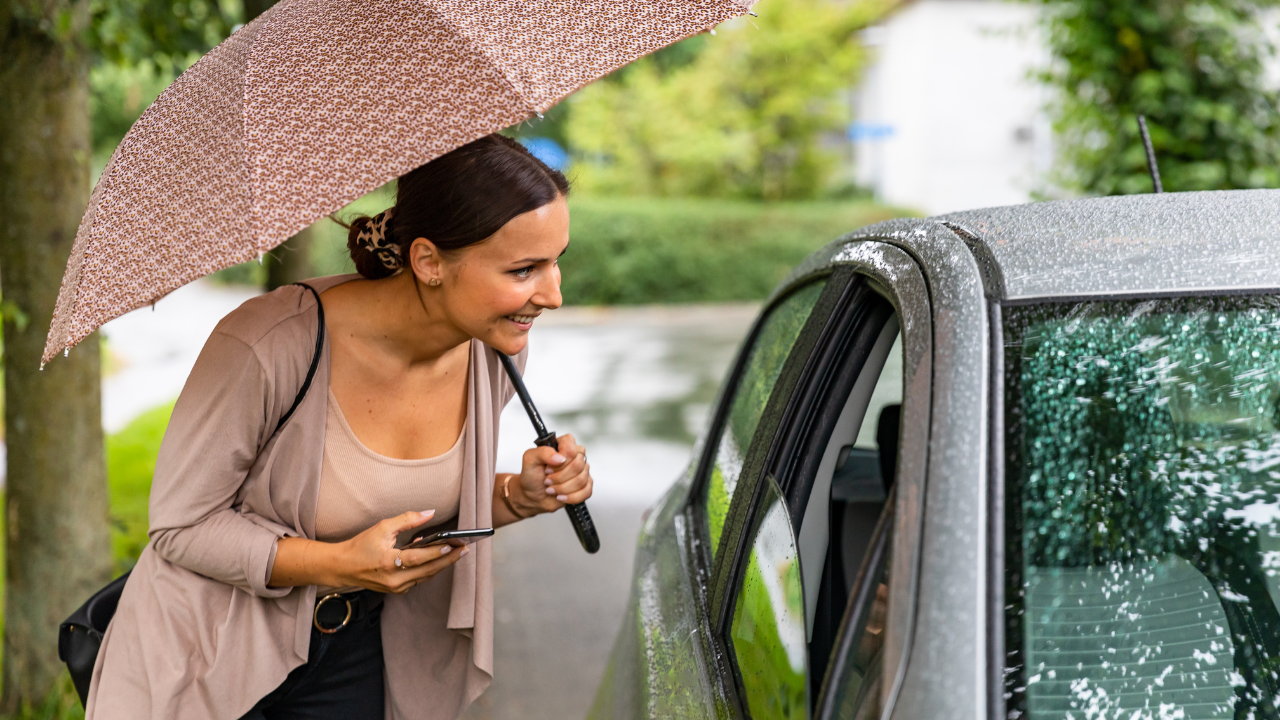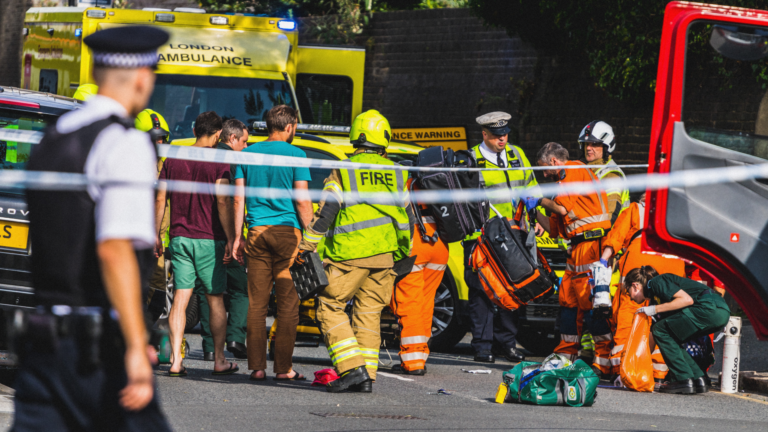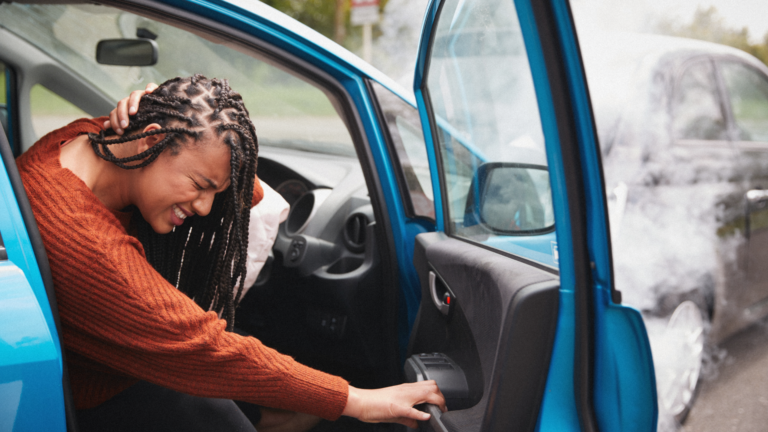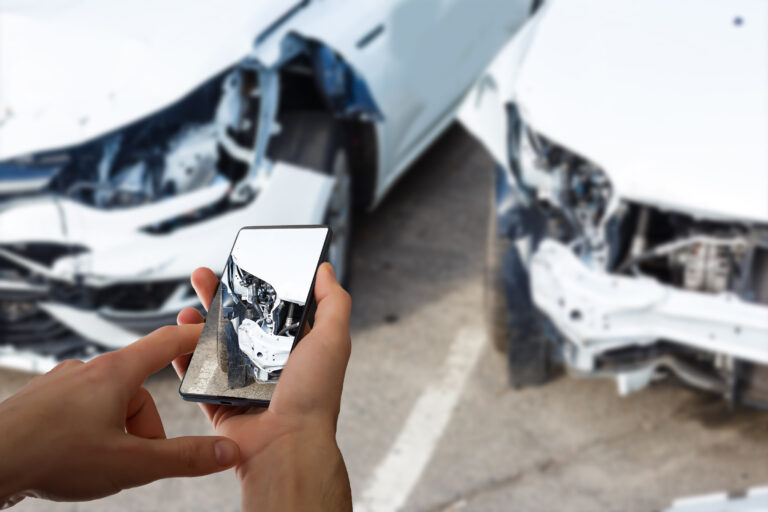
Rideshare services like Uber and Lyft have revolutionized transportation in Atlanta and across Georgia. With millions of rides completed each year, these platforms offer convenience and flexibility for commuters, tourists, and locals alike. However, the rise in rideshare usage has also led to an increase in accidents involving these vehicles, raising important questions about safety and accountability.
Understanding your rights after an Uber or Lyft accident is crucial, whether you’re a passenger, driver, or even a third party affected by the crash. Recent changes to insurance laws in Georgia have made it even more important to know what protections are available to you. In this guide, we’ll break down the key details so you’re prepared if the unexpected happens. Let’s dive in!
Recent Changes to Rideshare Insurance Laws in Georgia
As of July 2023, Georgia implemented significant changes to its rideshare insurance laws, reducing the required coverage for Uber and Lyft drivers. Previously, rideshare companies were obligated to provide $1 million in uninsured and underinsured motorist coverage per incident. Now, the minimum coverage has been slashed to just $100,000 per person and $300,000 per accident. This dramatic reduction leaves victims with far less financial protection in the event of a serious crash.
For accident victims, these changes mean that compensation may not be sufficient to cover medical bills, lost wages, or other damages. If you’ve been injured in a rideshare accident, understanding how these new laws impact your claim is essential. Without proper legal guidance, you could end up shouldering costs that should have been covered by the rideshare company’s insurance.
Types of Rideshare Accidents and Common Scenarios
Rideshare accidents can involve various parties, including passengers, drivers, and third parties like pedestrians or other motorists. One common scenario occurs when a collision happens while the app is active, such as during the ride or while the driver is en route to pick up a passenger. These situations often raise questions about who is responsible for the damages.
Other frequent scenarios include accidents while waiting for a ride request, collisions caused by distracted driving, or crashes involving pedestrians at busy intersections. Each type of accident presents unique challenges when determining liability and securing compensation. Understanding these scenarios can help you better navigate the aftermath of a rideshare crash.
Determining Liability in Uber and Lyft Accidents
Liability in rideshare accidents depends on several factors, including the driver’s status at the time of the crash and whether the app was active. If the Uber or Lyft driver is at fault, their personal insurance or the rideshare company’s commercial policy may apply, depending on the situation. However, if another driver caused the accident, their insurance would typically be the primary source of compensation.
In some cases, both parties may share blame, which complicates the claims process. Georgia follows a modified comparative negligence rule, meaning your compensation may be reduced based on your percentage of fault. Determining who is liable requires a thorough investigation into the circumstances of the crash. That’s where expert legal advice becomes invaluable.
“Georgia law recognizes the independent contractor model that rideshare companies use, which places responsibility on you to maintain your own auto insurance. However, Uber and Lyft also provide liability coverage during certain periods when you’re logged into the app.” -The Champion Firm
It’s also worth noting that rideshare companies like Uber and Lyft classify their drivers as independent contractors, which can limit their direct liability. However, they are still required to provide certain levels of insurance coverage, especially during active rides. Understanding these nuances is key to holding the right party accountable.
Understanding Insurance Coverage Stages
App Off (Personal Use)
When a rideshare driver has their app turned off and is using their vehicle for personal purposes, only their personal auto insurance applies. This means there’s no additional coverage from Uber or Lyft during this time. If an accident occurs, the driver’s personal policy is the first line of defense.
App On, No Ride Accepted (Waiting)
Once the app is turned on but no ride has been accepted, limited rideshare insurance kicks in. This coverage typically ranges from $50,000 to $100,000, depending on the company. While this provides some protection, it’s often insufficient for severe injuries or extensive property damage.
“As of July 1, 2023, this requirement was reduced to $300,000 per accident, with a maximum of $100,000 per person. This represents a significant reduction in passenger protections.” -Hampton and Hampton Law
En Route to Pickup or Transporting Passenger
During the “active ride” phase—when the driver is either en route to pick up a passenger or transporting them—Uber and Lyft provide $1 million in liability coverage. This robust policy is designed to protect both drivers and passengers in the event of a serious accident. However, recent law changes have raised concerns about whether this coverage will remain adequate.
Steps to Take Immediately After a Rideshare Accident
Your first priority after a rideshare accident should always be safety. Ensure everyone involved is okay and call 911 if anyone is injured. Once the scene is secure, document everything: take photos of vehicle damage, road conditions, and any visible injuries. These details can be crucial later on.
Next, file a police report and exchange information with all parties involved, including the rideshare driver. Be sure to note the driver’s name, license plate number, and the ride confirmation details from the app. Notify Uber or Lyft about the accident as soon as possible, as they may require prompt reporting to process claims.
“On July 1st, a new rideshare law went into effect in Georgia that has lowered passenger protection insurance by 90%. Before this law went into place, rideshare companies like Uber and Lyft were obligated to provide ‘Uninsured and underinsured motorist coverage of at least $1 million per incident.'” -Rhine Law Firm
Finally, seek medical attention even if you feel fine. Some injuries, like whiplash or internal trauma, may not be immediately apparent. Keeping detailed records of your treatment will strengthen your case if you need to pursue compensation. Acting quickly and methodically can make a big difference in protecting your rights.

Your Rights as a Rideshare Passenger in Georgia
As a rideshare passenger in Georgia, you are entitled to certain protections under state law. The minimum insurance coverage provided by Uber and Lyft ensures that you have access to funds for medical expenses and other damages if you’re injured during a ride. However, recent reductions in coverage limits mean you may need to explore additional avenues for compensation.
If you’re involved in an accident, it’s important to act promptly to preserve your rights. Document the incident thoroughly, notify the rideshare company, and consult with a personal injury attorney to explore your options. Remember, your safety and well-being are paramount, and legal support can help you navigate this challenging time.
“If you are riding as a passenger in an Uber or Lyft and another driver causes a crash, you—just like your Uber/Lyft driver—are covered up to the Uber/Lyft U/M limits (usually $1,000,000). As explained above, the driver who caused the crash should also have his/her own liability coverage, which under Georgia law would be a minimum of $25,000.” -Rafi Law Firm
Your Rights as an Uber/Lyft Driver
Uber and Lyft drivers face unique challenges due to their classification as independent contractors. While they benefit from the companies’ commercial insurance policies during specific ride stages, they lack access to traditional employee benefits like health insurance or workers’ compensation. This gap can leave drivers vulnerable in the event of an accident.
If you’re injured while driving for Uber or Lyft, you may need to rely on your own insurance or the rideshare company’s policy to cover medical expenses and lost income. Navigating these claims can be complex, so working with a knowledgeable attorney is highly recommended. Protecting yourself legally and financially is critical in ensuring a fair outcome.
What Rights Third Parties Have in a Rideshare Accident
Third parties, such as pedestrians, bicyclists, or other motorists, also have rights if they’re injured in a rideshare accident. Depending on who is at fault, they may be able to file a claim against the rideshare driver’s insurance, the other driver’s policy, or the rideshare company’s commercial coverage.
“If you were a passenger in an Uber or Lyft, and were hurt in a crash, Georgia law gives you strong protections. The $1 million ride share insurance policy almost always applies.” -Andrew R. Lynch, P.C.
Compensation for third parties typically includes medical expenses, property damage, and pain and suffering. However, recent changes to Georgia’s rideshare insurance laws may impact the amount of compensation available. Consulting with an experienced attorney can help clarify your options and ensure you receive fair treatment.
Suing Uber, Lyft, or Drivers After a Crash
Suing Uber or Lyft directly can be challenging because their drivers are classified as independent contractors. However, the companies are still required to provide substantial insurance coverage during active rides, which can sometimes be accessed in a lawsuit. Understanding when and how to pursue legal action against these entities is key to securing justice.
In many cases, lawsuits target the at-fault driver rather than the rideshare company itself. Whether you’re a passenger, driver, or third party, proving negligence is essential to winning your case. Working with a skilled attorney can help you build a strong claim and navigate the complexities of litigation.
“Determining who is at fault in an accident involving an Uber or Lyft driver follows the same basic principles as any other car accident in Georgia. The person who was negligent or careless is usually considered to be at fault.” -Prince May

What Compensation is Available After a Rideshare Accident?
After a rideshare accident, victims may be eligible for various types of compensation, including medical expenses, lost wages, pain and suffering, and property damage. The exact amount depends on the severity of the injuries, the circumstances of the crash, and applicable insurance policies.
Unfortunately, recent reductions in insurance coverage limits in Georgia may leave some victims undercompensated. For example, the new $100,000 cap per person may not cover long-term medical treatments or significant property repairs. Understanding these limitations is crucial when negotiating settlements or pursuing legal action.
Settlement negotiations can be tricky, as insurance companies often aim to minimize payouts. Having an experienced attorney on your side can level the playing field and ensure you receive the full compensation you deserve. Don’t settle for less than what’s fair—your future depends on it.
“Collect Evidence at the Accident Scene: Take time-stamped photos of vehicle damage as well as close-ups of license plates, skid marks, traffic signals, and any road signage. You should also note road conditions such as wet pavement or debris.” -The Champion Firm
How a Personal Injury Attorney Can Help
An experienced personal injury attorney can be your greatest ally after a rideshare accident. From investigating the crash and gathering evidence to negotiating with insurers and representing you in court, a lawyer can handle every aspect of your case. Their expertise ensures that no detail is overlooked and that your rights are fully protected.
Insurance companies often use tactics like lowball offers or shifting blame to reduce payouts. A skilled attorney knows how to counter these strategies and fight for maximum compensation. If you’ve been injured in a rideshare accident, don’t hesitate to reach out to professionals like those at The Super Lawyer, who specialize in rideshare accident cases.
Frequently Asked Questions
What should I do immediately after a rideshare accident in Atlanta?
After a rideshare accident, prioritize safety by checking for injuries and calling 911 if needed. Document the scene with photos and videos, exchange information with all parties involved, and notify Uber or Lyft promptly. Seek medical evaluation even if you feel fine, as some injuries may not appear right away.
Does Uber or Lyft have to pay my medical bills after a crash?
Uber and Lyft are required to provide insurance coverage during specific ride stages, which may include medical bill payments. However, the extent of coverage depends on fault and the stage of the ride. Recent law changes in Georgia may limit available compensation, so consulting an attorney is advisable.
Can I sue Uber, Lyft, or their drivers if I’m injured?
Yes, you can sue Uber, Lyft, or their drivers if you’re injured due to negligence. However, suing the companies directly can be complicated due to their drivers’ independent contractor status. An attorney can help determine the best course of action based on the specifics of your case.
What limits are there on compensation after a rideshare accident in Georgia?
Georgia’s recent law changes have reduced rideshare insurance coverage limits to $100,000 per person and $300,000 per accident. These caps may not be sufficient for severe injuries or extensive damages, highlighting the importance of legal representation to maximize your compensation.
How long do I have to file a claim after a rideshare accident in Georgia?
In Georgia, the statute of limitations for personal injury and property damage claims is generally two years from the date of the accident. Filing promptly ensures you don’t miss critical deadlines and gives your attorney ample time to build a strong case.
Conclusion
Understanding your rights after an Uber or Lyft accident in Atlanta is more important than ever, especially given the recent reductions in insurance coverage. These changes may leave accident victims undercompensated, making it crucial to act quickly and seek legal guidance. By documenting the incident thoroughly and consulting with experts, you can protect your rights and pursue the compensation you deserve.
If you’ve been involved in a rideshare accident, don’t wait to take action. Reach out to trusted professionals like The Super Lawyer to ensure your case is handled with care and expertise. Remember, timely documentation, understanding insurance procedures, and pursuing your claim promptly are key to achieving a fair outcome. Your peace of mind is worth it!
Call to Action: If you’ve been affected by a rideshare accident in Atlanta, contact The Super Lawyer today for a free consultation. Their team of experts will guide you through the process and fight for the compensation you deserve. Don’t let someone else’s negligence leave you financially burdened—take the first step toward justice now!



